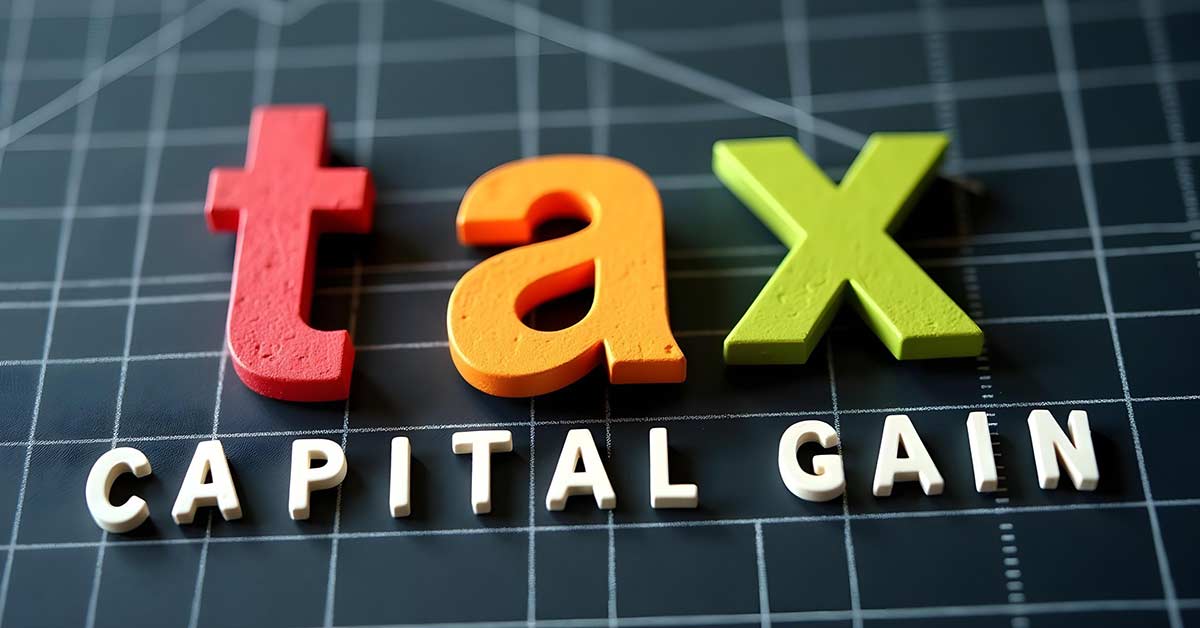Introduction
Imagine you’ve spent the past year watching your crypto investments fluctuate wildly—one week you’re riding high, the next you’re biting your nails. Now it’s 2025, and a new wave of IRS guidelines has everyone buzzing. Whether you’re trading Bitcoin in your dorm room, using crypto to pay a freelance invoice, or just “hodling” in hopes of big future profits, here’s the biggest question: How will capital gains tax impact your bottom line? In this guide, you’ll discover fresh insights on U.S. crypto tax regulations (2024–2025), actionable strategies to help you save on taxes, and all the must-know tips to stay legit with the IRS.
Why Crypto Capital Gains Tax Matters in 2025
- Rising Crypto Adoption: Students, young professionals, and tech-savvy investors are diving in.
- IRS Scrutiny Intensifies: The IRS and state authorities are paying closer attention to crypto transactions, meaning it’s never been more important to file correctly.
- Potential Tax Savings: Proper tax planning can help you keep more of your gains—helpful for tuition or that dream vacation.
Ready to see how short-term vs. long-term gains can transform your tax bill? Let’s dive in.
Short-Term vs. Long-Term Capital Gains on Crypto
| Holding Period | Tax Treatment | Why It Matters |
|---|---|---|
| 1 Year or Less | Short-Term Capital Gains (10–37%)* | Typically taxed at ordinary income rates. |
| Over 1 Year | Long-Term Capital Gains (0–20%)* | Enjoy reduced rates if you hold longer |
Note: Exact tax brackets depend on your filing status and annual income. Refer to current IRS publications for precise thresholds.
Key Insights for 2025
- Short-term crypto gains are lumped in with wages, freelancing income, etc., and can push you into a higher tax bracket.
- Long-term gains may see small rate adjustments year to year (0–20%), but 2025’s thresholds often allow middle-income earners to pay 15% or possibly 0% if their total taxable income is low enough.
Pro Tip: If you’re eyeing a quick flip, keep an eye on your potential bracket jump. A seemingly small gain can push you into a higher tax tier for the year.
Want to minimize your tax bite further? Let’s talk about which transactions really trigger taxes.
What Actually Counts as a Taxable Crypto Event?
- Selling Crypto for USD or Other Fiat
- If you bought Bitcoin for $500 and sold it for $1,000, you have a $500 capital gain.
- Trading One Crypto for Another
- Swapping Bitcoin for Ethereum is a disposal event. You pay taxes on the difference in value from when you originally acquired the Bitcoin.
- Using Crypto to Purchase Goods/Services
- Paying for a laptop with Bitcoin triggers a capital gain (or loss) based on how much your Bitcoin has appreciated or depreciated.
- Receiving Crypto as Payment or Rewards
- Staking, mining, or receiving freelance payments in crypto = ordinary income at the coin’s fair market value on the day you get it.
- Airdrops & Hard Forks
- Treated as income upon receipt, establishing a new cost basis for each distribution.
Not Taxable: Moving coins between personal wallets you control is not a disposal event—no capital gains or losses there.
Now that you know the big taxable triggers, let’s dig into real-world strategies that can help you reduce your 2025 tax bill.
Actionable Strategies to Lower Your Crypto Tax Burden
- Tax-Loss Harvesting
- Sell underperforming assets at a loss to offset gains from more profitable trades.
- For example, if you had a $300 gain on Bitcoin and a $150 loss on Litecoin, your net gain becomes $150 (saving you tax dollars).
- HODL for Long-Term Gains
- Simply holding onto crypto for 12+ months could drop your tax rate from a short-term bracket to as low as 0% or 15%.
- Use a Crypto Tax Calculator
- Tools such as Official IRS Interactive Tax Assistant (for general guidance) or specialized third-party crypto platforms can help you estimate liabilities.
- Document Everything
- Keep logs of dates, prices, fees, and wallet transactions. Detailed records are your best defense if the IRS wants clarification.
- Stay Updated on IRS Guidance
- By 2025, the IRS may have new clarifications or forms. Check IRS Cryptocurrency FAQ periodically to avoid surprises.
2025 Tax Brackets Snapshot for Crypto Investors
While official 2025 federal brackets may see slight adjustments, here’s an illustrative snapshot based on current IRS publications and proposed inflation adjustments:
Short-Term Capital Gains (Same as Ordinary Income)
- 10%: Up to $12,000 (approx.)
- 12%: $12,001–$48,000 (approx.)
- 22%: $48,001–$105,000 (approx.)
- 37%: $610,000+ (approx.)
Long-Term Capital Gains
- 0%: Up to $48,000 (approx.)
- 15%: $48,001–$520,000 (approx.)
- 20%: $520,000+ (approx.)
Disclaimer: Actual brackets for 2025 could differ slightly. Always confirm with IRS.gov or a licensed tax professional.
So, how do these brackets translate to real savings or liabilities? Let’s walk through an example.
Understand by example:
Mia is a college senior who bought $2,000 in crypto in 2023. By late 2024, her holdings were worth $3,500. Unsure of the tax consequences, she sold $1,500 worth of crypto in early 2025 to pay for textbooks.
- Holding Period: ~1.5 years → qualifies for long-term gains
- Gain: $1,500 (sale) – $1,000 (portion of original cost basis) = $500 net capital gain
- Tax Rate: 15% (assuming her total income)
- Tax Owed: $75
By holding for over 12 months, Mia saved hundreds compared to short-term rates. She also documented her transactions in a spreadsheet, making the tax filing process smoother.
How Capital Gains Tax is calculated:
Capital Gain = Sell Proceeds – Cost Basis
Capital gains tax is calculated based on the difference between the sell proceeds of an asset (selling price minus any associated selling fees) and its cost basis (the initial purchase price plus any associated costs). Here’s how it works:
- Short-term capital gains: These are gains from the sale of assets held for one year or less. They are typically taxed at the investor’s ordinary income tax rate.
- Long-term capital gains: These are gains from the sale of assets held for more than one year. They are taxed at reduced rates, which can be more favorable than short-term rates.
- Tax Rates: Short-term gains are usually taxed at your ordinary income tax rate, while long-term gains benefit from lower tax rates, which vary based on your income bracket.
Example Calculation:
Let suppose you bought 1 BTC for $1000 and you paid $50 as fee on 2nd Jan 2023. After a year, you sold 1 BTC for $1500 and you paid $60 as selling fee on 2nd Feb 2024.
Purchase Price: $1,000
Purchase Fee: $50
Cost Basis: $1050
Selling Price: $1,500
Selling Fee: $60
Sell Proceeds = $1440
Capital Gain: $1,440 – $1,050 = $390
Held for more than a year, this $390 is taxed at the long-term capital gains rate.
Common Crypto Tax Mistakes to Avoid
- Ignoring Small Trades
- Even minor trades count; compile them in your Form 8949 to stay compliant.
- Forgetting Fees
- Fees can reduce your capital gains when properly accounted for.
- Neglecting State Taxes
- Some states have their own rules. Check local guidelines.
- Mixing Wallets
- Keep personal wallet transfers separate from taxable events.
Ready to finalize your knowledge? Here’s how to file and stay ahead in 2025.
Risks and Considerations
Understanding and complying with capital gains tax regulations is crucial:
1. Non-Compliance Penalties: Failing to accurately report capital gains can result in penalties, interest, or even legal action from tax authorities. It’s crucial to ensure that all crypto transactions, including buying, selling, and trading, are properly recorded and reported on your tax return.
2. Regulatory Changes: Tax laws surrounding cryptocurrencies are constantly evolving. Staying informed about changes in regulations is vital to ensure compliance and avoid unexpected tax liabilities.
3. Complexity in Record-Keeping: Keeping accurate records of every cryptocurrency transaction, including dates, amounts, and prices at the time of the trade, can be overwhelming. Mismanagement or missing data can lead to incorrect reporting and penalties.
4. Misunderstanding Holding Periods: The length of time you hold a cryptocurrency impacts the tax rate. Misunderstanding or miscalculating your holding periods can lead to paying higher taxes on short-term gains.
5. Unrealized Losses and Gains: Failing to strategically manage when to sell assets can result in tax liabilities that could have been minimized. Proper timing and awareness of unrealized gains or losses are crucial for effective tax planning.
How to File Crypto Taxes in 2025
- Gather Transaction History
- Pull data from all exchanges, wallets, and relevant DeFi protocols.
- Fill Out Form 8949
- List each transaction’s date, cost basis, proceeds, and gain/loss.
- Transfer Totals to Schedule D
- Summarize gains and losses.
- Include Income from Staking or Mining
- Use Schedule 1 for miscellaneous income.
- Use Tax Software or a Professional
- Tools like CoinTracking, CRPTM, or TaxBit can simplify the process. A CPA ensures deeper accuracy.
Additional Insights & 2025 Trends
- Growing Regulatory Clarity: Expect more precise IRS language around NFTs, DeFi lending, and stablecoins.
- International Reporting: If you have foreign crypto accounts or trade on international platforms, FBAR or FATCA rules may apply.
- Potential New Exemptions: Legislation is in flux; watch for updates that could broaden crypto’s tax advantages.
How can CRPTM Help?
Using a crypto tax calculator software like CRPTM can greatly enhance your tax management strategy. CRPTM automatically track your transactions, calculate your gains and losses, and generate the necessary tax forms, ensuring accuracy and compliance. With real-time data and comprehensive reporting, CRPTM can save your time and reduce the risk of errors, making it easier to manage your crypto investments and optimize your tax obligations.
Conclusion
You’ve just navigated the essentials of capital gains tax on cryptocurrency for 2025. From short-term vs. long-term rates to strategic tax moves and potential pitfalls, the key is staying informed and maintaining meticulous records. If you’re unsure about how these rules apply to your specific situation, consult a tax professional.
Stay curious, stay compliant, and keep more of your hard-earned gains!
Disclaimer: The information presented on this website is intended for general informational purposes only and should not be interpreted as professional advice from CRPTM. CRPTM does not offer financial advice. We strongly recommend seeking independent legal, financial, tax, or other professional advice to determine how the information provided on this website applies to your specific circumstances. CRPTM assumes no liability for any loss incurred, whether due to negligence or otherwise, resulting from the use of or reliance on the information contained herein.




